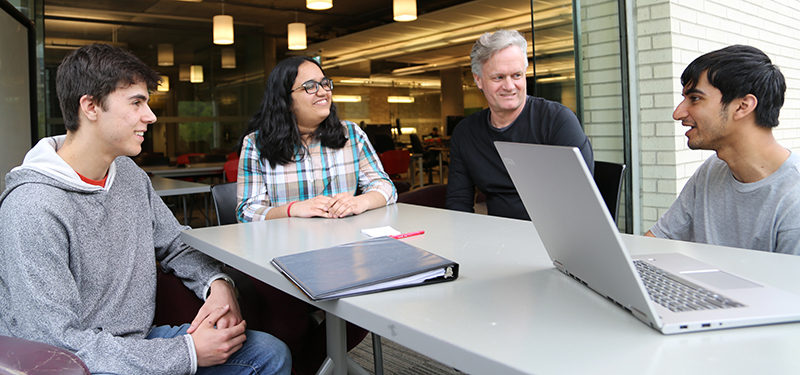June 6, 2019

Professor Will Cluett (ChemE) will succeed Professor Deepa Kundur (ECE) as interim chair of the Division of Engineering Science (EngSci) beginning on July 1, 2019. Professor Kundur has been appointed as chair of The Edward S. Rogers Sr. Department of Electrical & Computer Engineering.
Professor Cluett previously served as chair of EngSci from 2005-2011, and is returning for a 1-year term as interim chair. Over his 30-year career at U of T, he has made tremendous contributions to undergraduate engineering education in several leadership roles and as an award-winning educator.
As the Faculty’s chair, first year, from 1997-2003, Cluett led the development and launch of the Da Vinci Engineering Enrichment Program (DEEP), a cornerstone outreach initiative. As vice-dean, undergraduate, from 1998-2003, he played a key role in the creation and implementation of Engineering Strategies and Practice, U of T Engineering’s flagship first year design and communication course.
As chair of EngSci from 2005-2011, Cluett led the development of the Engineering Mathematics, Statistics, and Finance major. He also oversaw expansion of the Engineering Science Summer Research Opportunities Program (ESROP), which gives EngSci students unique opportunities to conduct research in universities around the world.
During his time as chair of EngSci, Cluett also created a new course in Engineering Mathematics and Computation, which uniquely integrates theory and computation for first year students. His outstanding skill as an instructor and his dedication to teaching innovation have been recognized with several awards. These include the Faculty’s Sustained Excellence in Teaching Award in 2016, and the President’s Teaching Award, which is U of T’s highest honour for teaching, in 2018. He is also a designated member of the University’s Teaching Academy.
Professor Cluett shared his thoughts on the unique nature of the EngSci program and the role of educators in preparing students for challenges beyond the classroom.
What makes Engineering Science unique?
I think it’s the rich blend of theory and practice. Engineering Science graduates have the rigorous technical background to pursue advanced study in topics such as physics or medicine, but they also have a strong sense of how to apply their knowledge to practical challenges. It is a very innovative curriculum, one of the things that distinguishes our Faculty from other Engineering schools.
EngSci has always been a nimble program that responds relatively quickly to emerging areas of research — how does this impact the curriculum and student experience?
EngSci has been very successful at anticipating where engineering is going and developing new majors to prepare future leaders in those emerging fields, from robotics to machine intelligence. This is the benefit of the Divisional structure whereby teaching resources are drawn from existing departmental strengths both inside and outside the Faculty.
As someone who has been recognized for teaching excellence, what insights can you share about the role of a program like EngSci beyond teaching technical skills?
The challenge for us as educators is to help students become more self-aware and to give them the skills and quiet confidence to realize their potential. In this way, students will be prepared to meet whatever challenges face them upon graduation.
What are you most excited about in returning to EngSci?
I’m looking forward to working with the staff in EngSci who play a critical role in the program’s student experience. I am also looking forward to reconnecting with our EngSci alumni. Since I was last chair of EngSci, I have continued to teach ESC103F Engineering Mathematics and Computation to the first year EngSci class, enabling me to maintain contact with the EngSci student body over the past 9 years.